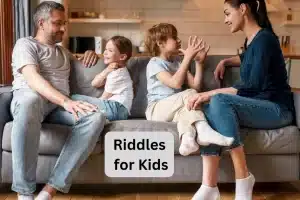by Jennifer Shakeel

Marijuana is sometimes used as a self-treatment by individuals with attention deficit hyperactivity disorder (ADHD). Advocates for marijuana as an ADHD treatment say the drug can help people with the disorder handle some of the more severe symptoms. These include agitation, irritability, and lack of restraint. To start getting treated, check this Exhale Wellness’ delta 8 carts with THC.
We know that they will grow out of it, and that even if they don’t want to completely admit, they need us. What is even more important is that you know they need you, and this can be especially true if your child is living with ADHD. Our son has ADHD, was diagnosed in the 2nd grade. Up until I gave in and believed what the specialists were saying… and seeing my baby boy almost give up, and we started him on medication, I had lost count of the number of phone calls from the principal. I had a stack of notes from the teacher. Yes we even had in school and after school suspensions. It wasn’t his fault, he needed help… and once he got it, he was a changed boy.
This is not to say that the years since then have been peachy. We have still had our ups and downs, our battles with accountability, responsibility and the fact that medication only does so much and you have to do your part as well. I remember the days of finding his pills hidden under the cereal bowel he left on the table as he dashed out to the bus. Yes, he was and is nothing if not clever.
But now we are getting ready to enter the teen years. Where we know that we have even more challenges in front of us. Right now, our son is not on medication. He actually took himself off of it last October. He felt he was ready and wanted to prove that he had control of himself. He does, when he wants to. I attribute this to becoming a teenager. What teen out there doesn’t think that they are masters of their own destiny and can tackle any obstacle that is set in their way? The truth is, there isn’t one. From that standpoint whether your child has ADHD or not, they are a teenager and that is the way they are.
It is normal for parents not to know what to do, when their child is exhibiting “abnormal” behavior or unacceptable attitude. It’s here that we as parents have to improvise and think quickly so that we don’t make a bad situation worse. To help with the parenting issues of teens, but specifically teens with ADHD I decided to lay out a few ground rules. These have worked with our son, and they may need to be fine tuned for you and your child… but I think that they will help.
- Structure is important, whether you just found out that your teen has ADHD or you have been living with it for awhile, structure is vital. They need to know what to expect and when to expect it.
- Monitor them – I don’t mean follow them around like a private eye. But ask close friends to keep an eye out, talk with teachers so that you are all on the same page and that way any changes in behavior can be addressed quickly.
- Set limits – though teens hate that word… and the thought of limits, they are really important when it comes to dealing with your teen who has ADHD. Now, I should also state that those limits need to be clearly defined. You can’t just say that if you do this, this is going to happen. You need to describe what “this” is and every possible permutation of it you can think of. Our son is genius at getting us whenever we fail to spell it all out. He doesn’t do it on purpose, it is just the way his mind works. I have an example from today actually. He was out with a friend, doing exactly what he was told not to do. Now, his reason for doing it… was… understandable to a point, but still wrong. What we had to make him understand is that there were not any justifications for what he was doing. It was wrong no matter how you cut it and now he is going to pay the consequences because he knew it was wrong.
- Give them some freedom – they need to be able to prove themselves. Self esteem is a fragile thing to a teenager and a really fragile thing for a teen with ADHD. Let them show you that they can be responsible. It doesn’t matter if it is a chore at home, a privilege that they have wanted… you know your child better than I do. But give him or her a chance to prove themselves by giving them a little freedom.
- Establish the rules for living in your home, including the use of drugs and alcohol, sexuality aspects, religion etc. and explain the link to a person’s responsibility not only towards the family but the society at large.
- Also negotiate all other issues that may affect responsibility. This activity must go through until graduation from high school. Punishments that are not given at the time of event will gradually loose its affectivity over time.
- Involve them in decision making, for they are young and present some unique perspectives that may have a novel solution. When creating rules or amending them, we gave the first chance to our son and asked him to prepare suggestions that he felt would be valid for a certain situation. We would take those into consideration and either bend or accept them to match ours. It was always more acceptable to him as he had part ownership. This also helps them being shaped for the future.
Most important of all, use the consequences very carefully and wisely, but be consistent. Give your teenager immediate and frequent feedback. Try to use some form of incentive before rolling out the punishment. We look at a report card and in give flash order grounding until the next report period. I have done that too. So before you jump the gun, discuss what is it that would bring out better grades the next time between the spouses and then explain what the teenager has to do. This may be similar to the nightly curfew time. Grounded from this time to this time until one to two week and then soliciting weekly reports from the subject teacher. This will help in making the decision easier and at the same time will be encouraging to the child to achieve more quickly.
There are many negatives that the teenager has to face in their lifetime. ADHD tends to pull down their self-esteem. You can help them along by giving them feed-back by being creative and consistently. Too much and repeating the same things again and again leads to them thinking that their parents are all talk and no substance. Once all the rules are set and the consequences have been understood, it is time for action and little talk. Do your interventions the same way.
Lastly, it is very critical to keep open lines of communications all through this period. Avoid putting them down or inadvertently hurting their feelings, especially in front of their peers or in the company of family and friends. We need to practice forgiveness while holding the teenager accountable for their actions without holding grudges.
Biography
Jennifer Shakeel is a writer and former nurse with over 12 years medical experience. As a mother of two incredible children with one on the way, I am here to share with you what I have learned about parenting and the joys and changes that take place during pregnancy. Together we can laugh and cry and rejoice in the fact that we are moms!
No part of this article may be copied or reproduced in any form without the express permission of More4Kids Inc © 2009 All Rights Reserved











1,530 Comments